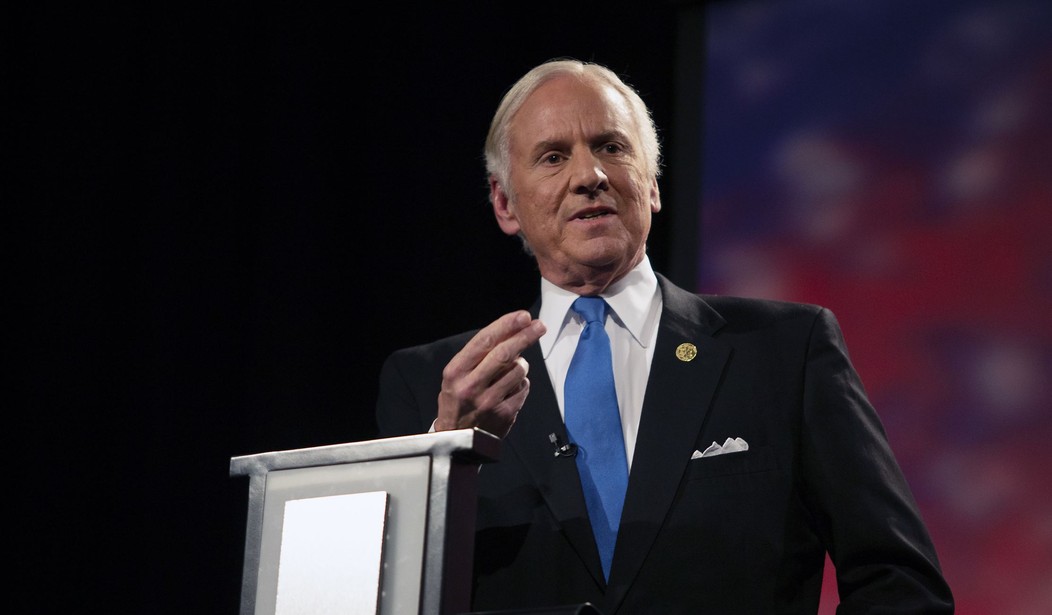The South Carolina state Senate passed its long-awaited “heartbeat” abortion bill on Tuesday, clearing its final hurdle before the legislation is forwarded to the desk of Republican Governor Henry McMaster who will sign it.
Gov. McMaster had called the legislature for an additional session to ensure that several bills, including the “Fetal Heartbeat and Protection Act,” received votes before the legislative session ended. The state Senate passed the bill with a 27 to 19 vote on Tuesday.
McMaster congratulated lawmakers Tuesday on Twitter for passing the ban and confirmed he would sign the bill into law. “The General Assembly has handled this issue in a thoughtful, transparent and collaborative manner,” he wrote. “Tonight, our state is one step closer to protecting more innocent lives. I look forward to signing this bill into law as soon as possible.”
The General Assembly has handled this issue in a thoughtful, transparent and collaborative manner. Tonight, our state is one step closer to protecting more innocent lives. I look forward to signing this bill into law as soon as possible.
— Gov. Henry McMaster (@henrymcmaster) May 23, 2023
A baby’s heartbeat can typically be heard within six weeks of gestation.
The legislature passed a similar ban on abortions after six weeks back in 2021, although it was struck down by the state’s Supreme Court earlier this year on the grounds that privacy rights guaranteed by the state constitution require procedure restrictions that provide women with adequate time to seek a termination.
The attempt to pass additional restrictions on abortion faltered in April when the “Human Life Protection Act,” which aimed to outlaw most abortions in the state, fell short by a 22-21 vote after several Republicans voted no. The bill, which provided exceptions for rape or incest incidents, had previously been approved in the state House.
On Tuesday, five female lawmakers from both parties in the state Senate united in an effort to prevent the bill from being passed. Nonetheless, the three Republicans who had previously sided with them to oppose a more comprehensive abortion ban during the regular session ended up supporting the six-week ban.
Before casting her vote against the bill, Republican State Senator Katrina Shealy proposed an amendment to extend the abortion limit to 12 weeks, and up to 20 weeks for victims of rape and incest.
“Men are 100% responsible for pregnancies,” said Shealy as she announced her amendment. “Men are fertile 100% of the time. So, it is time for men in this chamber and the ones across that hall and all across the state of South Carolina to take some ejaculation responsibility.”
Republican state Sen. Richard Cash, meanwhile, said he felt the legislation was a reasonable compromise. “So, what basis do we say, by law, that we’re going to draw a line by majority vote, which we can kill that human being?” asked Cash. “That’s what this debate is all about. I mean, I’ll be the first to say it’s a terribly flawed bill that we’re going to vote on, this fetal heartbeat bill, filled with inconsistencies and exceptions. It fails to protect human life from the beginning.”
The country’s largest abortion provider and campaign group, Planned Parenthood, responded to the news by threatening to take legal action. “[The South Carolina] legislature just passed a ban on abortion after 6 weeks of pregnancy,” they wrote on Twitter. “The bill now heads to the governor, who is expected to sign the bill into law. We have just one thing to say to the state of South Carolina: We’ll see you in court.”
BREAKING: The S.C. legislature just passed a ban on abortion after 6 weeks of pregnancy. The bill now heads to the governor, who is expected to sign the bill into law.
We have just one thing to say to the state of South Carolina: We'll see you in court. pic.twitter.com/Bj4jFIFeUM
— PP South Atlantic SC (@PPSATSC) May 23, 2023














Join the conversation as a VIP Member